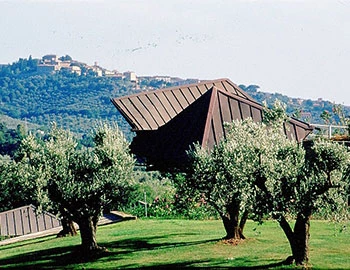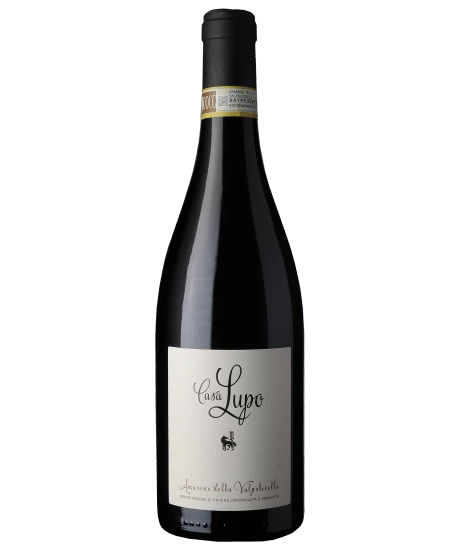
Casa Lupo Amarone della Valpolicella 2019
DOCG, Casa Lupo by Paladin, 750 ml

| Grape variety: | Corvina, Corvinone, Rondinella |
| Producer: | Casa Lupo by Paladin |
| Origin: | Italy / Veneto / Amarone |
Description
Its opulence and fullness are paired with a fresh and juicy acidity, which gives it great drinking pleasure. The sweetness remains discreetly in the background, the mature tannins are perfectly embedded. Balsamic notes and aromas of cherry jam, dried plums, blackberries and mocha form its wonderful aroma and taste spectrum. An eager wine, very lively and granted with a long finish.
Attributes
| Origin: | Italy / Veneto / Amarone |
| Grape variety: | Corvina, Corvinone, Rondinella |
| Ripening potential: | 4 to 12 years |
| Drinking temperature: | 16 to 18 °C |
| Food Pairing: | Bistecca fiorentina, T-Bone steak, Spicy hard cheese, Roasted lamb gigot, Latin American dishes, Rabbit ragout with olives |
| Vinification: | fermentation in steel tank |
| Harvest: | hand-picking, in small boxes, drying of the grapes |
| Maturation: | in large wooden barrel/foudre, long cultivation |
| Maturation duration: | 24 months |
| Volume: | 16.0 % |
| Note: | Contains sulphites |
Casa Lupo by Paladin
Casa Lupo is the Paladin family’s Valpolicella “subsidiary” and consists of 25 hectares spread between the towns of Negrar and Illasi in the province of Verona.
Visitors to Veneto usually stay at Lake Garda or in “Romeo and Juliet’s” culturally rich city of Verona. But wine enthusiasts will be tempted by the Ripassi and Amaroni along the southern slopes of the central Alps leading down to Valpolicella.
Paladin’s vineyard team cultivates the vines here all year round and takes care of the harvest. Vinification and bottling is carried out by a local partner to ensure compliance with the legal regulations for DOC and DOCG.
The name “Casa Lupo” has its origins in the history of the region, where many years ago Valpolicella was almost completely covered with forests which were inhabited by several large packs of wolves. It was literally the home of the wolf, or “Casa Lupo” in Italian.
The white calcareous and argillaceous soils are used to cultivate the red grape varieties Corvina, Corvinone, Rondinella and Molinara. The Mediterranean climate produces elegant, sophisticated and very complex wines, which delight visitors with their excellent drinkability and pair perfectly with local cuisine.
Travel tips for culinary and nature lovers
Gastronomy:
Trattoria alla Ruota
Via Proale, 6, 37024 Negrar
www.trattoriaallaruota.it
Antica Bottega del Vino
Via Scudo di Francia, 3, 37121 Verona
www.bottegavini.it
One of the best cheese affineurs in Italy:
Family Bernardinelli
I sapori del portico
Via San Francesco 48, 37024 Arbizzano-Santa Maria
Nature:
The idyllic national park: Parco Naturale della Lessinia
In the small Dolomites: Hiking area in the Campobrun nature reserve
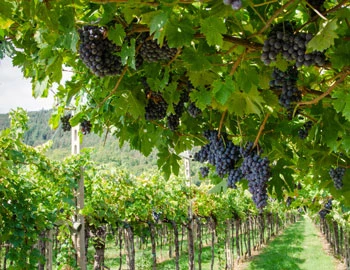
Rondinella
Robust grapes
The cherry-fruity red Rondinella is number two in the league of Amarone grapes. The Corvina traditionally takes the lead role; Molinara plays the third violin. Winemakers appreciate Rondinella’s extreme resistance to fungal diseases. This is important because the grapes for Amarone are dried for several months prior to pressing. While this takes place in a well ventilated area, it is nonetheless advantageous if the berries are not susceptible to the consequences of potential moisture. Rondinella is also placed in the sweet wine Recioto, the second specialty of the Valpolicella region, as well as in Bardolino, the house wine of the nearby Lake Garda.
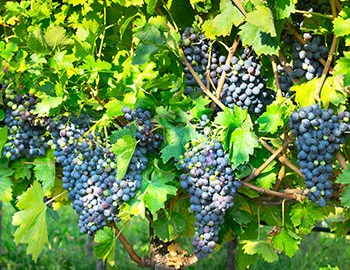
Corvinone
Born for the supporting role
The dark-coloured, acid-accented Corvinone from Veneto is almost never pressed by itself. Instead, it is a part of the grape variety mixture for Amarone. The grapes for this opulent wine from the Valpolicella region are dried and are ideal for the Corvinone. Its grapes are large, so they do not shrivel too much. The grapes grow loosely, and as a result rot more slowly than berries that rest too closely on top of each other. Corvinone is also found in Bardolino, a dry red from Lake Garda.
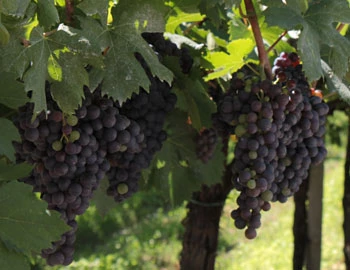
Corvina
Everything stays in the family
This triumvirate is inseparable: the red Corvina grapes and their genetic offspring, Rondinella and Molinara. They come from Valpolicella in the northern-Italian Veneto. There they are processed together into the flagship wines of the region: the opulent Amarone and the sweet Recioto. The principle is always the same: the winemaker dries the grapes after harvest for a few months. Thus the water evaporates in the berries, and the sugar concentrates, similar to raisins. The Corvina always plays the lead role in this. It shines with a deep red colour, juicy, sour cherry fruit and mild tannins. It contributes the same qualities to the Bardolino, a dry red from near Lake Garda. A bold tip: try Amarone with grilled Wagyu beef.
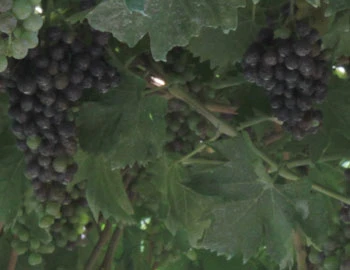
Veneto
Veneto: land of the Amarone and Prosecco
Veneto stretches from the Alpine foothills, through the flat Po Valley, to the Gulf of Venice on the Adriatic coast. Two types of wine in particular have been able to celebrate spectacular successes here in recent years: Amarone growths impress with their opulent body and force, while the cheerfully bubbling Proseccos please with their fruity, grape freshness. But the region also produces drinkable everyday wines, including the white Soave and the red Bardolino.
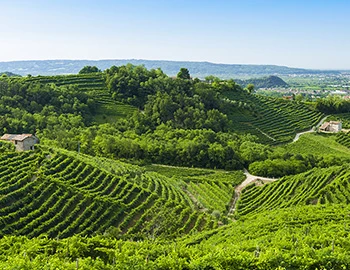
Italy
Italy – Where wine is a way of life
The Italian wine regions are extremely diverse, and this is made clear in their wines. Established varieties such as Merlot, Syrah, and Sauvignon can be found on just 15 percent of the total vine growing area. The remaining 85 percent is reserved for autochthonous, indigenous varieties. More than 2,000 different grape varieties are grown under diverse conditions and pressed with various techniques into wines that reach the top tier of the international wine market.
